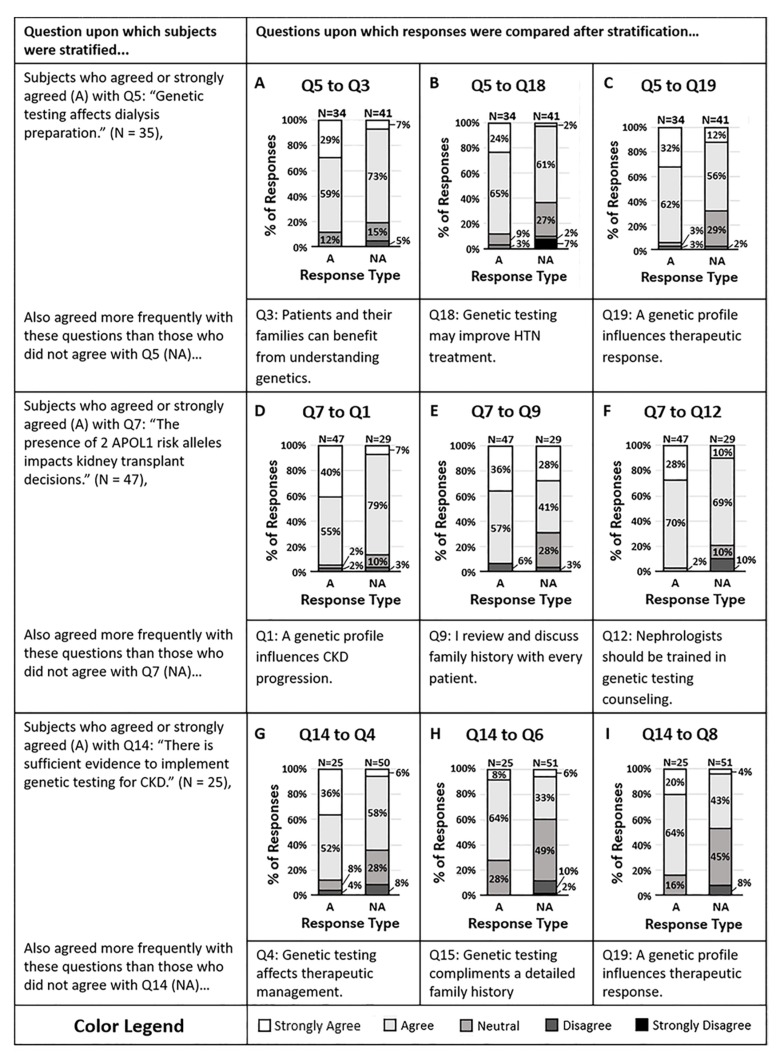Figure 2.
(A–C) Survey respondents who disagreed that genetic testing affects dialysis preparation (Q5) mostly agreed that (A) patients and their families can benefit from understanding the genetic contributors of CKD (Q3, p = 0.0473), (B) genetic testing may help them treat their patient’s hypertension more effectively (Q18, p = 0.0060), and (C) a genetic profile can influence antihypertensive therapeutic response (Q19, p = 0.0041). (D–F) Nearly all of the survey respondents who agreed that the presence of two APOL1 risk alleles in a potential donor impacts the decision for kidney transplant (Q7) also concurred that (D) a patients genetic profile can influence their risk of CKD progression (Q1, p = 0.0020), (E) they review and discuss family histories with every patient they meet in the hospital or clinic (Q9, p = 0.0011), and (F) nephrologists should be trained to interpret and counsel patients on genetic variants that contribute to CKD (Q12, p = 0.0149). (G–I) Survey respondents who disagreed that there is sufficient evidence to implement genetic testing in patients with CKD (Q14) were split approximately halfway on whether they agreed or disagreed that (G) genetic testing of CKD patients may affect therapeutic management (Q4, p = 0.0050), (H) genetic testing for CKD provides information that will help delay or halt CKD progression (Q6, p = 0.0138), and (I) the presence of two APOL1 risk alleles would impact FSGS management (Q8, p = 0.0052). Response colors are strongly agree (white), agree (light gray), neutral (medium gray), disagree (dark gray), and strongly disagree (black).

